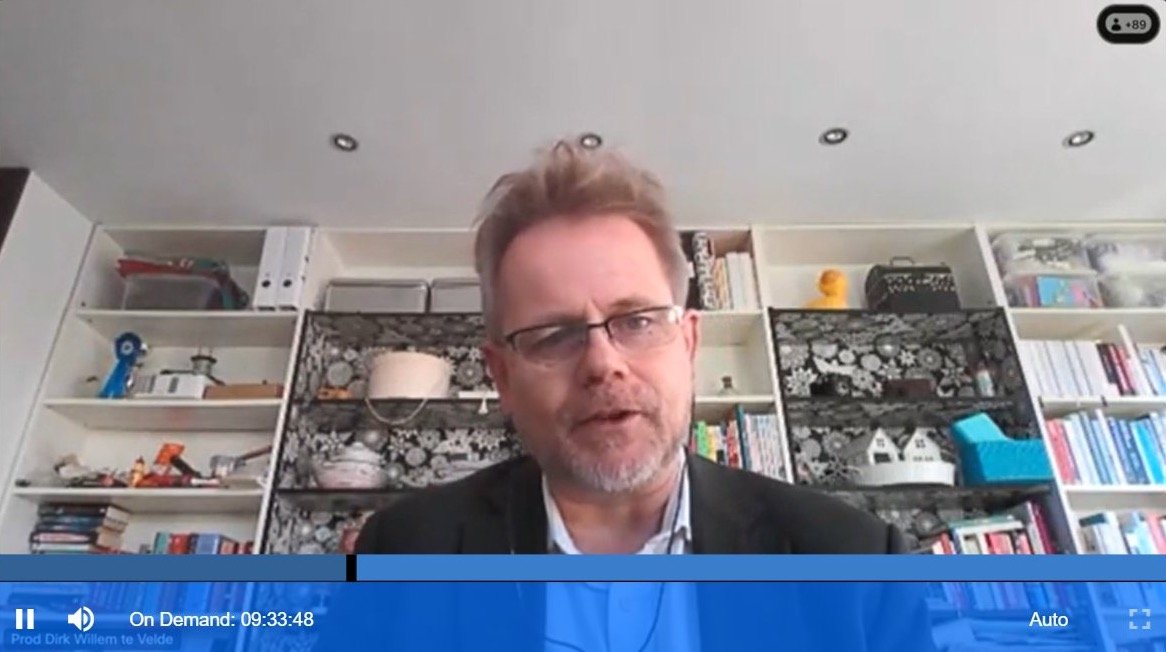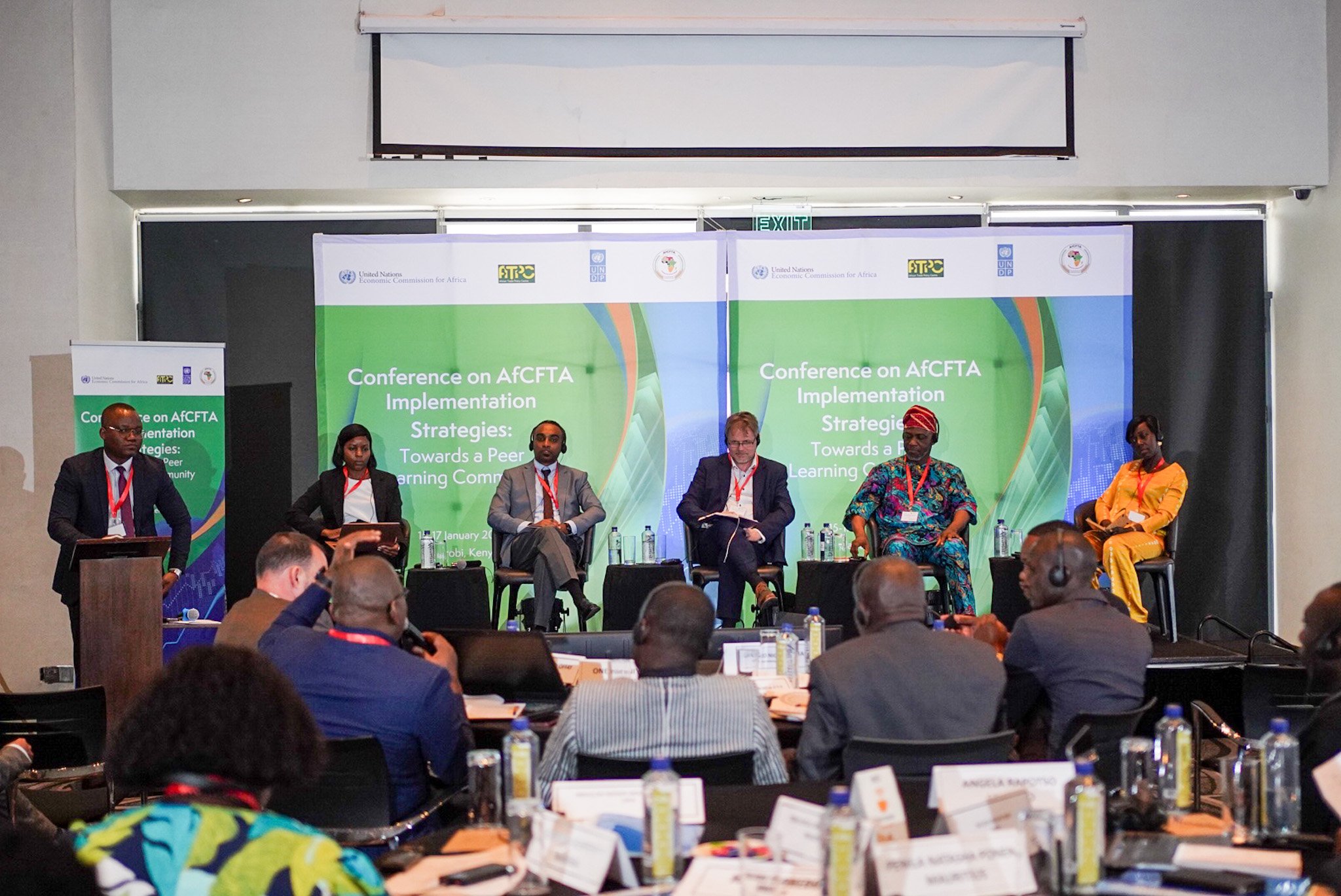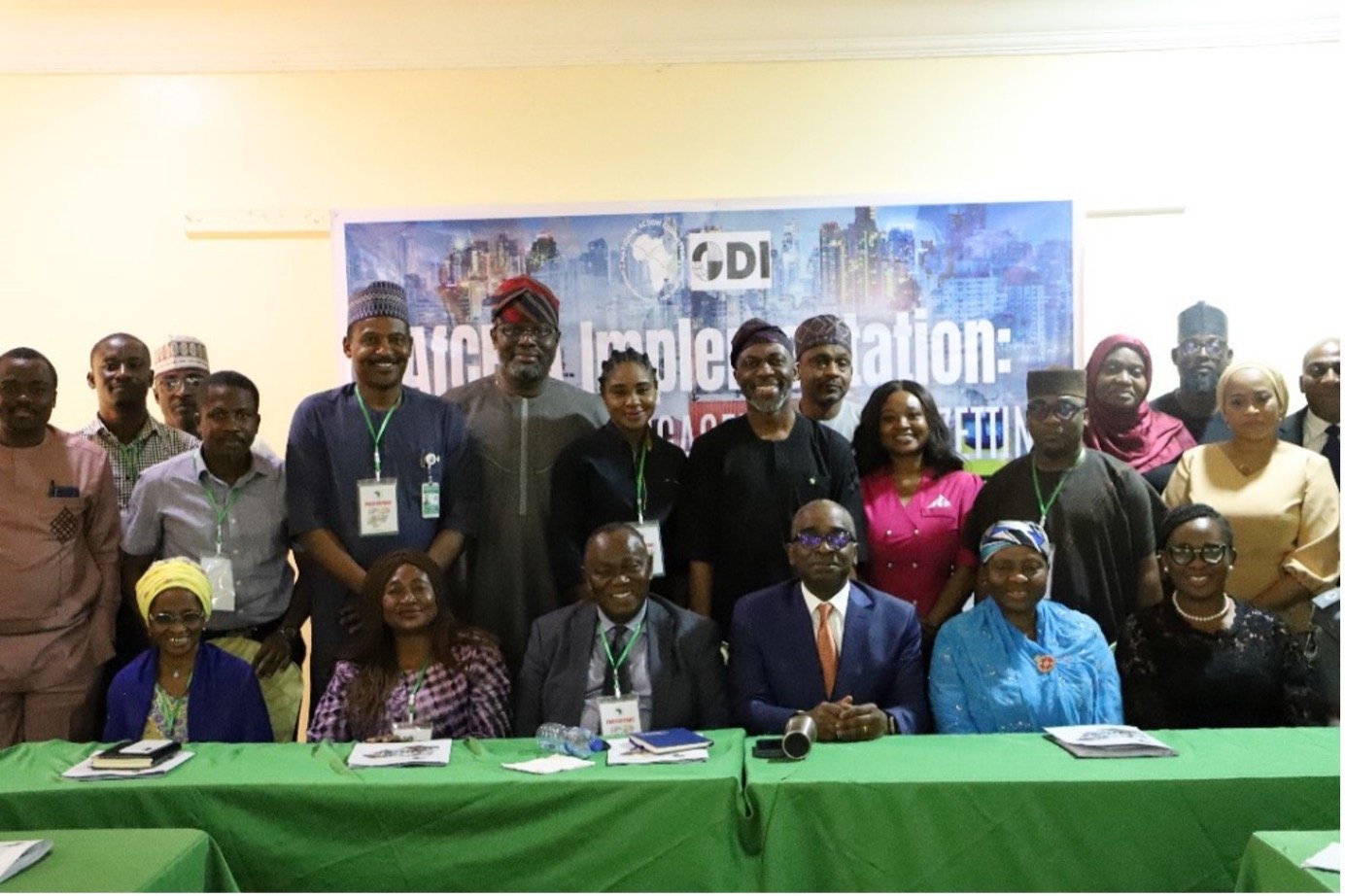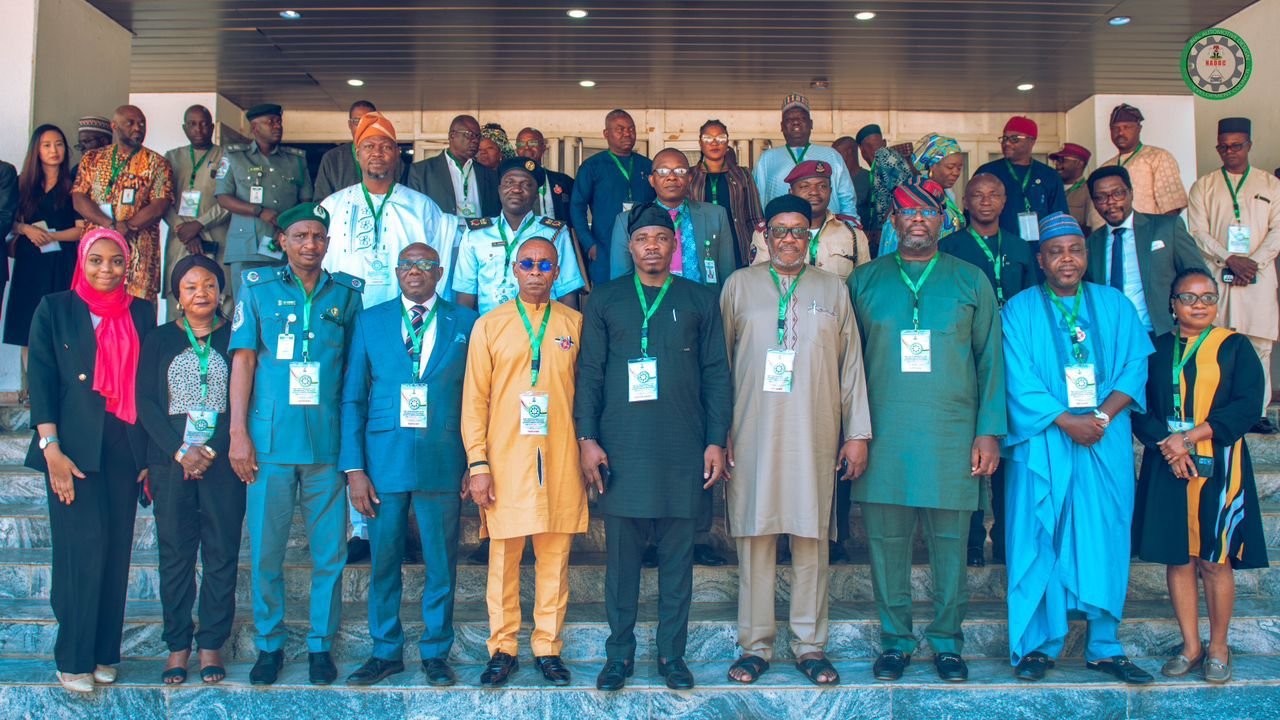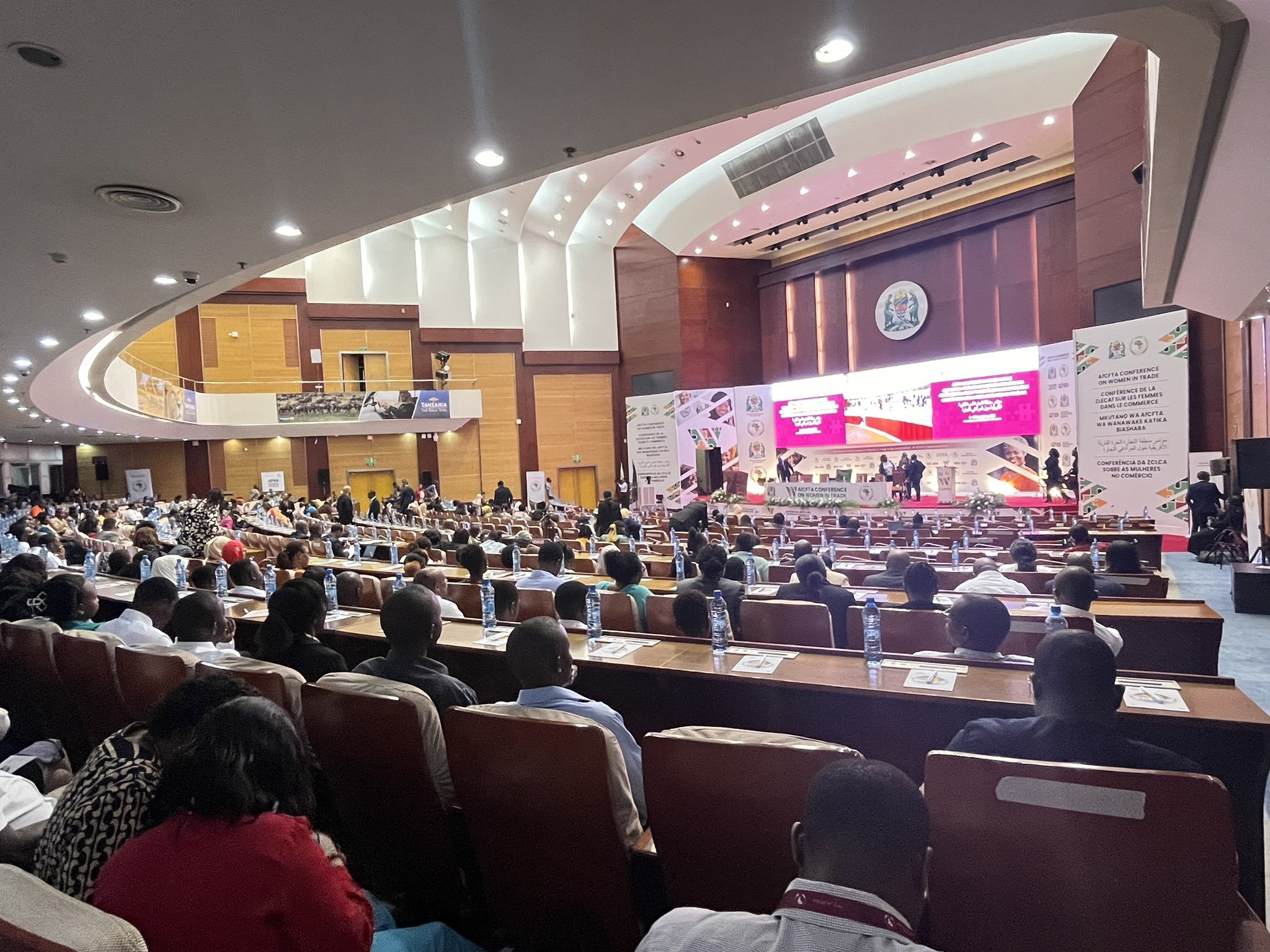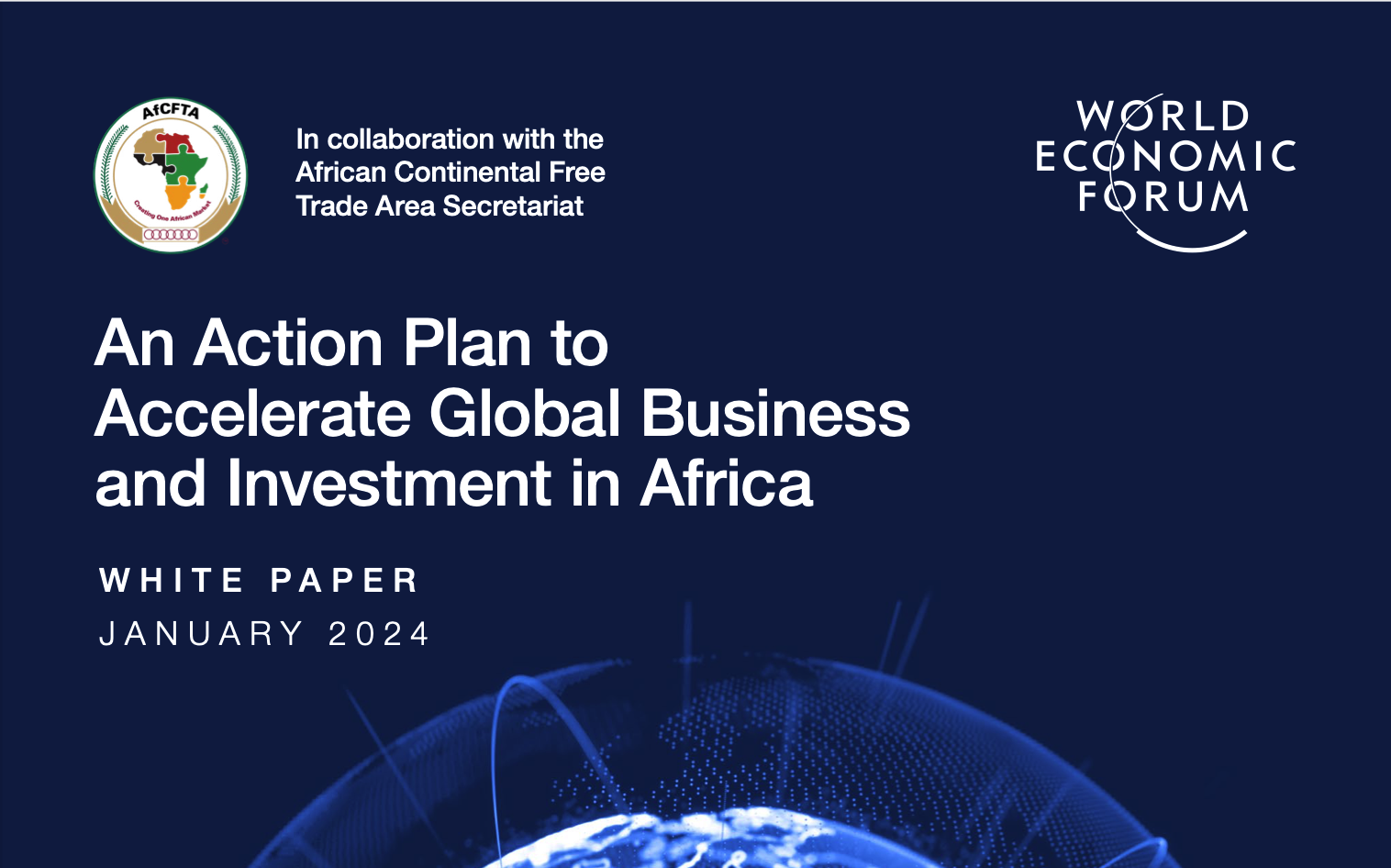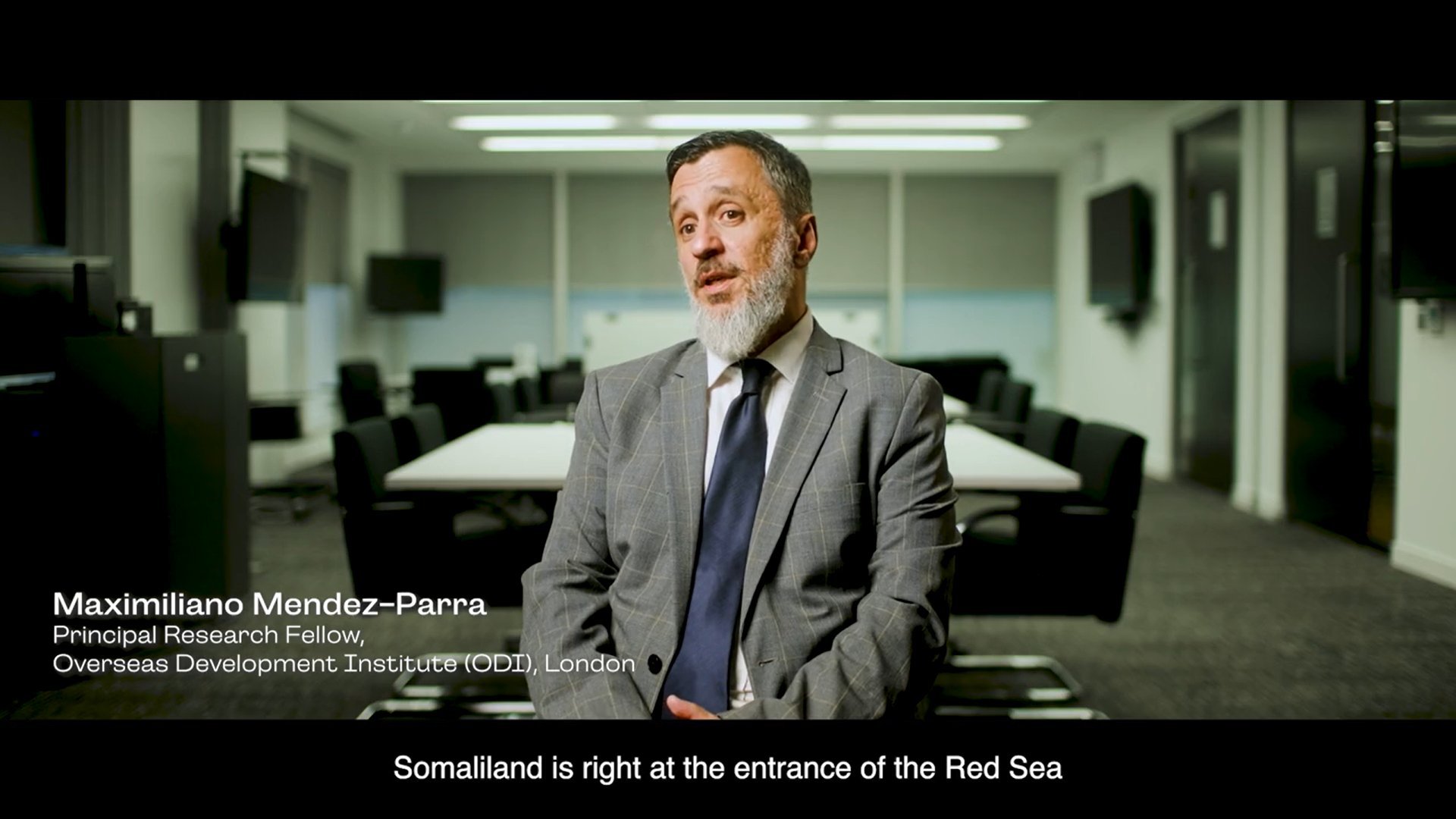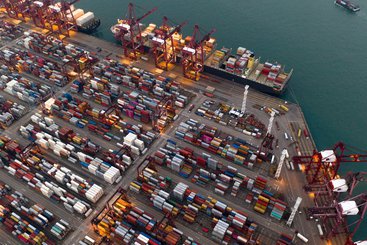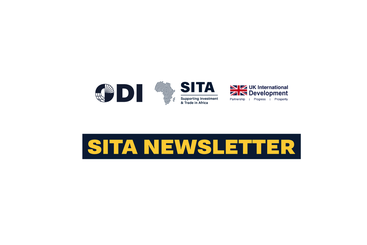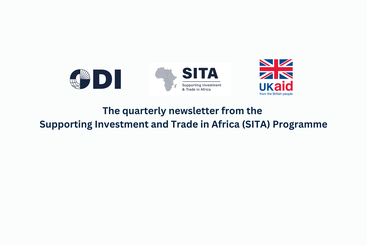In this edition of our quarterly newsletter, we have curated a diverse range of content to provide you with an overview of the latest updates of the SITA programme, a UK International Development-funded initiative to support the negotiations and implementation of the African Continental Free Trade Area (AfCFTA). We also cover recent developments in the world of trade and investment in Africa.
Over the winter, our team actively engaged stakeholders through high-impact events and gatherings. Highlights include productive visits to Tanzania and Kenya, collaborative activities in Nigeria, as well as contributions to major forums such as COP28. Additionally, our publications offer valuable perspectives shaping policy, AfCFTA processes and pathways towards sustainable economic development in Africa.
For real-time updates, follow us on X (formerly Twitter).
If you have any questions or comments, please do not hesitate to reach out to us.
To recieve this briefing by email, subscribe to our newsletter.
Roundtables and events
ODI and AfCFTA discuss priorities to strengthen intra-African trade
In January 2024, while on a working visit in London, the Secretary-General of the AfCFTA Secretariat, H.E. Wamkele Mene, met with the ODI SITA Team to discuss ongoing collaboration and implementation support of the landmark agreement.
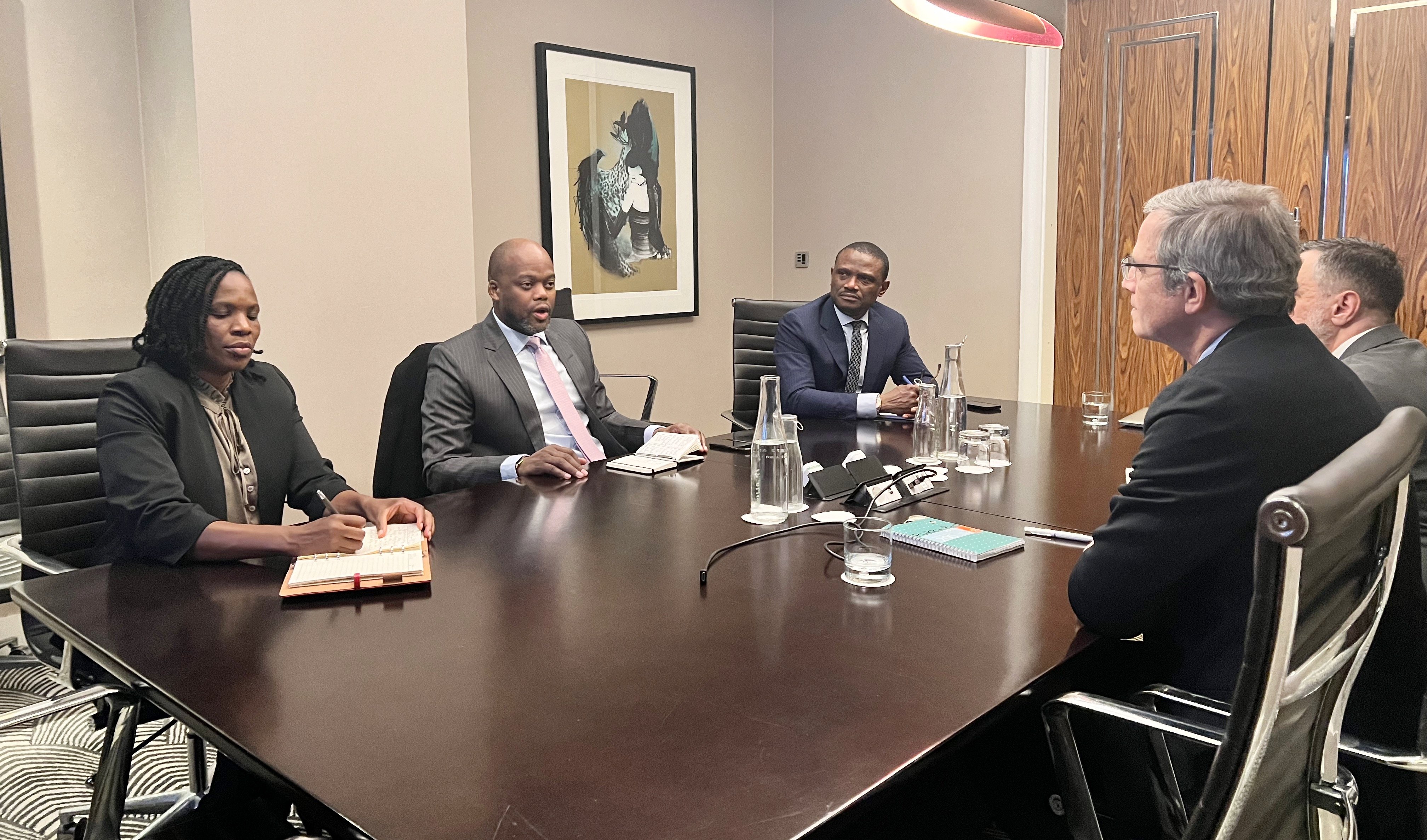
In attendance from the AfCFTA Secretariat were Ms Roslyn Ng’eno, Senior Investment Expert, and Mr Emeka Uzomba, Senior Advisor, Banking and Finance. ODI was represented by Hans Peter Lankes, Deputy Chief Executive and Managing Director, and Dr Max Mendez-Parra, SITA’s Technical Lead.
The meeting delved into various aspects of implementing the AfCFTA and strengthening its partnership with ODI. The discussion also covered topics like Rules of Origin in sectors such as textiles and garments, the automotive value chain and investment facilitation. The meeting underscored the need to accelerate the implementation of the Protocol of Investment at the national level and promote trade and investment between AfCFTA member states and the United Kingdom.
Looking ahead, both AfCFTA and ODI expressed enthusiasm for featuring AfCFTA in the agenda at the upcoming UK-Africa Investment Summit in London.
Harnessing digital trade to power Africa’s growth
In November, ODI hosted a timely roundtable on the “Significance of the AfCFTA Protocol on Digital Trade and its impact on African economies”. Over 50 participants from governments, businesses and international bodies gathered both online and in person in London to explore how this pivotal policy could turbocharge intra-African connectivity and trade.
The esteemed panel featured insights from Erick Serali of TradeMark Africa, Laura Naliaka from UNECA, Walter Mandela of the WEF, Irene Oliván from the OECD, James Howe and Donia Alwan of ITC, Jeremy Faber of Prosper Africa, and Olusegun Olutayo from Nigeria's National Action Committee-AfCFTA. ODI’s Dr Max Mendez-Parra, who also serves as SITA’s Technical Director, presented an assessment of the impact of the AfCFTA Digital Trade Protocol on member countries. They were expertly moderated by Michelle Chivunga of Global Policy House.
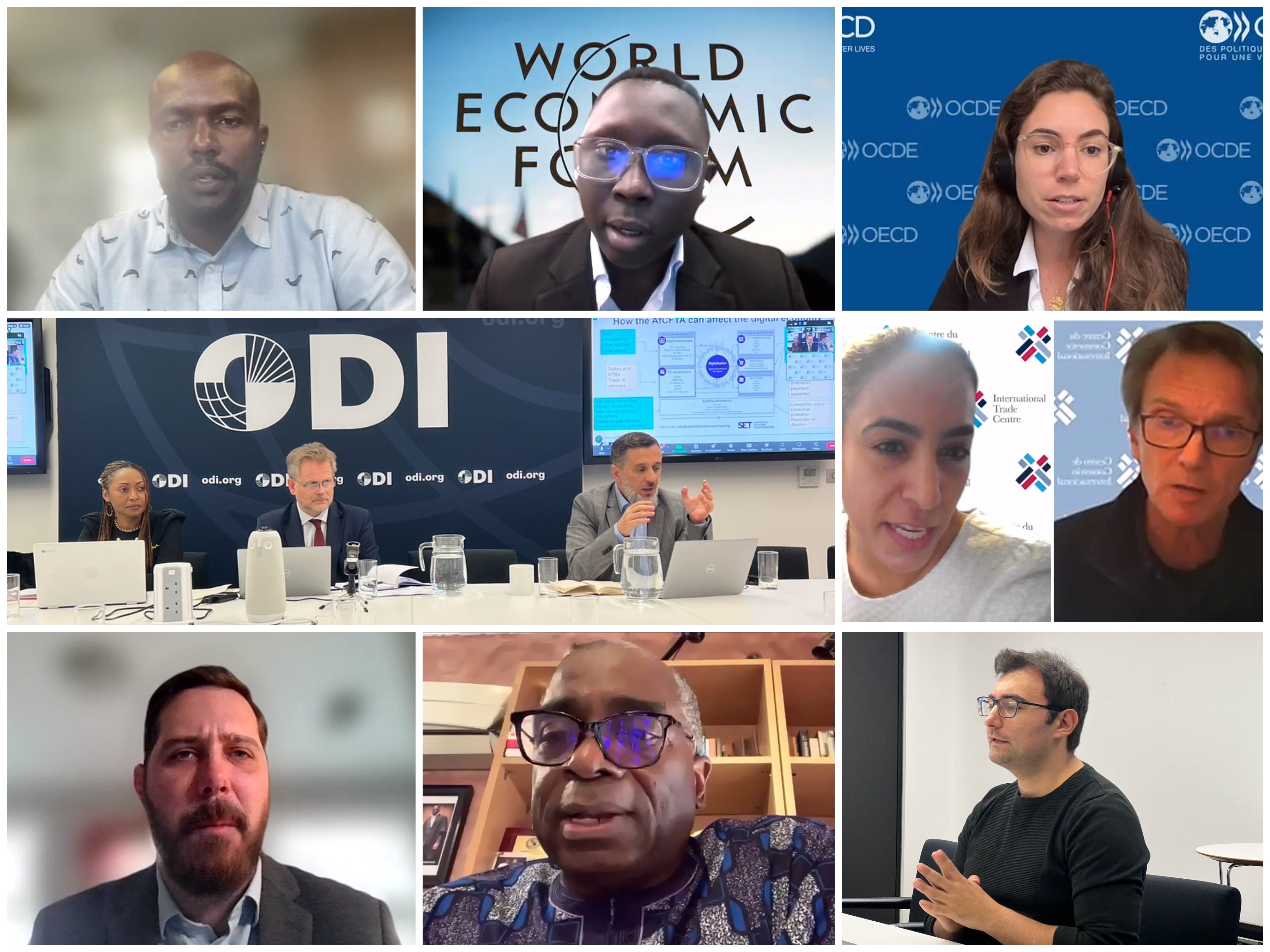
The event recognised the AfCFTA as the overarching framework to facilitate digital trade across the continent. Panellists unpacked key areas the protocol may address, like e-commerce, data flows and emerging technologies. Harmonising regulations across states and developing infrastructure emerged as priorities to plug digital gaps.
Participants agreed a coordinated rollout supporting stakeholders represents a landmark opportunity to realise Agenda 2063's vision for the continent. With final negotiations underway, ongoing cooperation across sectors will be key to overcoming hurdles and realising this policy's immense promise to fundamentally power Africa's growth in the digital age. If properly implemented, the AfCFTA Digital Trade Protocol has the potential to establish the continent as a global leader in digital transformation.
Somalia's Minister of Finance discusses the country's economic future
Also in November, His Excellency Bigi Iman Egeh, Somalia's Minister of Finance, participated in a roundtable hosted by ODI in London to discuss the country's economic development pathway. The event, titled “Supporting Somalia's Future Economic Progress”, provided a platform to strategically explore Somalia's development pathway to reach its goal under the Heavily Indebted Poor Countries (HIPC) Initiative, and priorities going forward. In his opening remarks, Minister Egeh outlined Somalia's economic journey over the past decade, highlighting reforms undertaken by the government with support from the IMF and World Bank.
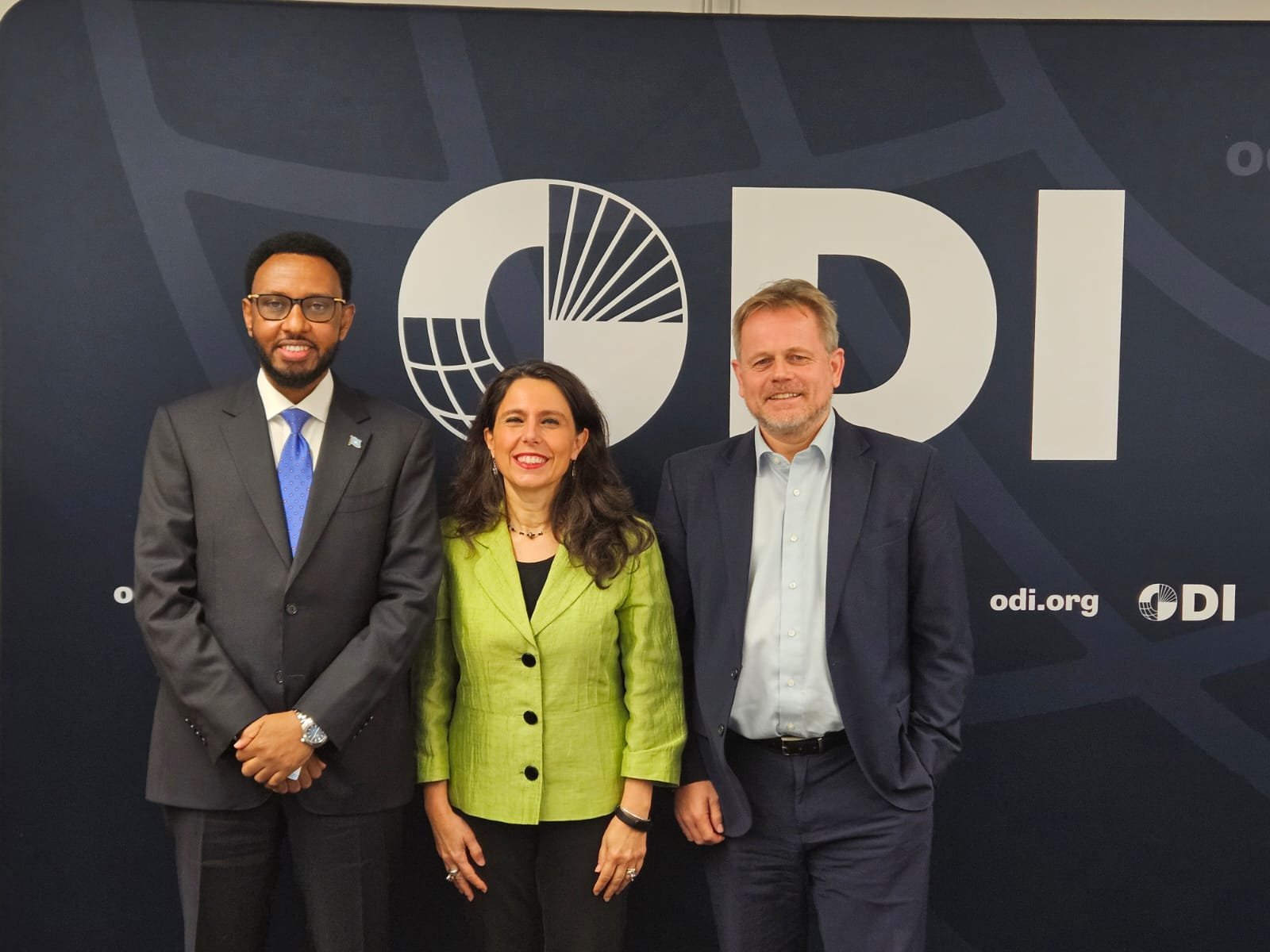
The Minister engaged in constructive dialogue with participants where key topics of discussion included post-HIPC priorities, strengthening independent fiscal oversight, adapting support to Somalia's fragility context, and examining opportunities and challenges associated with accessing climate finance and multilateral technical assistance. Moderated by SITA Director Dirk Willem te Velde, the meeting also discussed the role of trade policies (such as the AfCFTA) in charting a sustainable future for Somalia.
The momentum continued in the days after the roundtable discussion as two major milestones arrived in quick succession - the Eastern Africa Community (EAC) admitted Somalia as its 8th Member, marking a significant step for Somalia in strengthening regional economic cooperation. The IMF and World Bank also approved $4.5 billion in debt relief through the HIPC Initiative.
Exploring Kaizen's role in AfCFTA implementation
In November, we co-hosted an engaging roundtable with the Japan International Cooperation Agency (JICA) on “Strengthening firm capabilities in the context of AfCFTA implementation: the role of Kaizen” and promoting industrial development across Africa.
The roundtable explored how Kaizen—Japan's model of continuous improvement through collaborative, small efficiencies—could help African nations maximise opportunities under the AfCFTA. It featured insights from Prof. Izumi Ohno from the National Graduate Institute for Policy Studies (GRIPS) in Japan and representatives from JICA Mr. Kimiaki Jin and Mr. Kuniaki Amatsu who shared their extensive experience applying Kaizen principles across Africa, including in countries which have already proven effective such as South Africa's automotive sector and Ethiopian manufacturing.
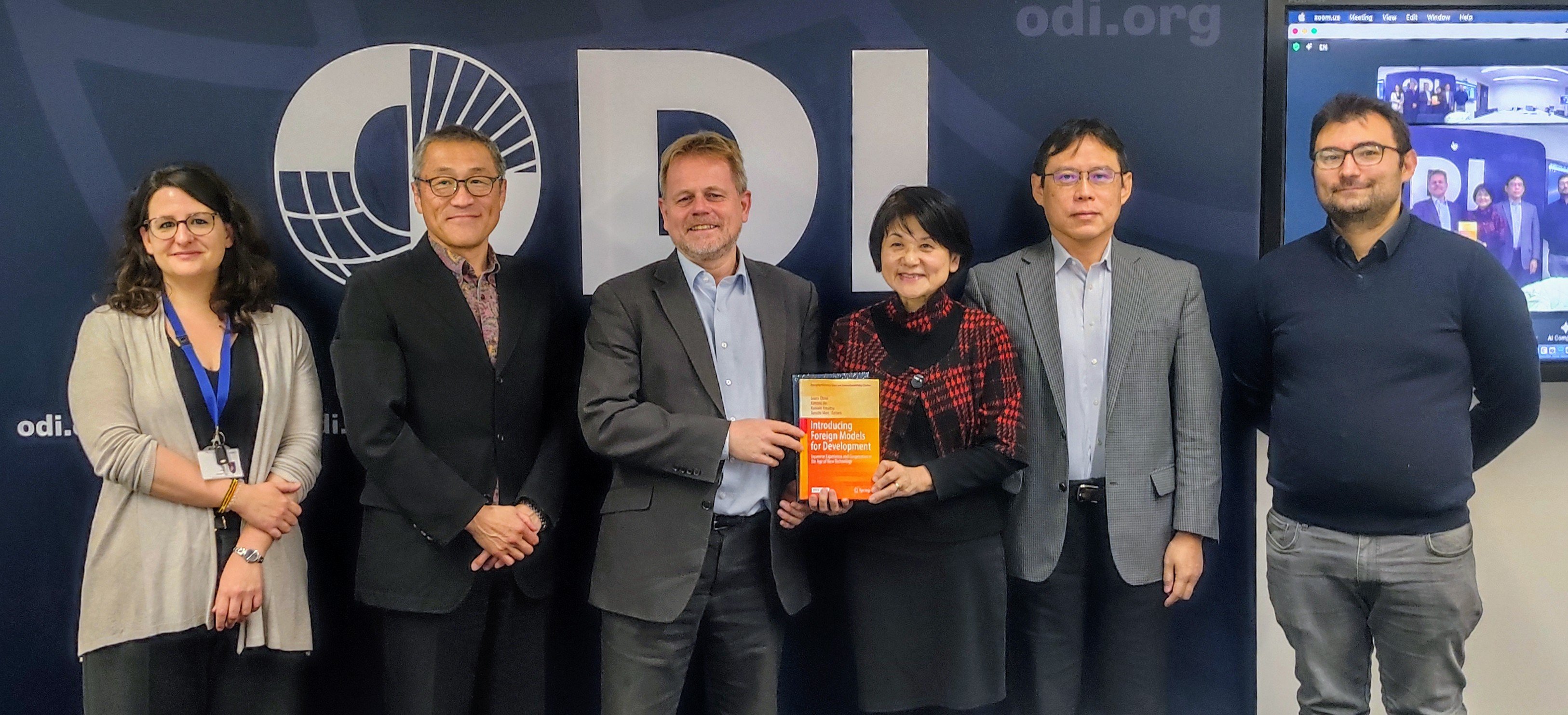
Chairing the discussion, SITA Director Dirk Willem te Velde focused on pathways to industrialisation and economic transformation envisioned by the AfCFTA.
The engaging dialogue highlighted Africa’s potential for an “East Asian chain reaction” of expanding industrial development, emphasising how regional integration and adopting productivity-enhancing best practices could help African firms develop capabilities to thrive in global trade.
Unlocking Africa’s green trade potential
In November ahead of COP28, ODI hosted a virtual event on “Africa’s green trade opportunities: policy insights for aligning trade and climate action”. Bringing together policymakers, businesses and experts, panellists discussed Africa’s priorities at the intersection of trade and climate.
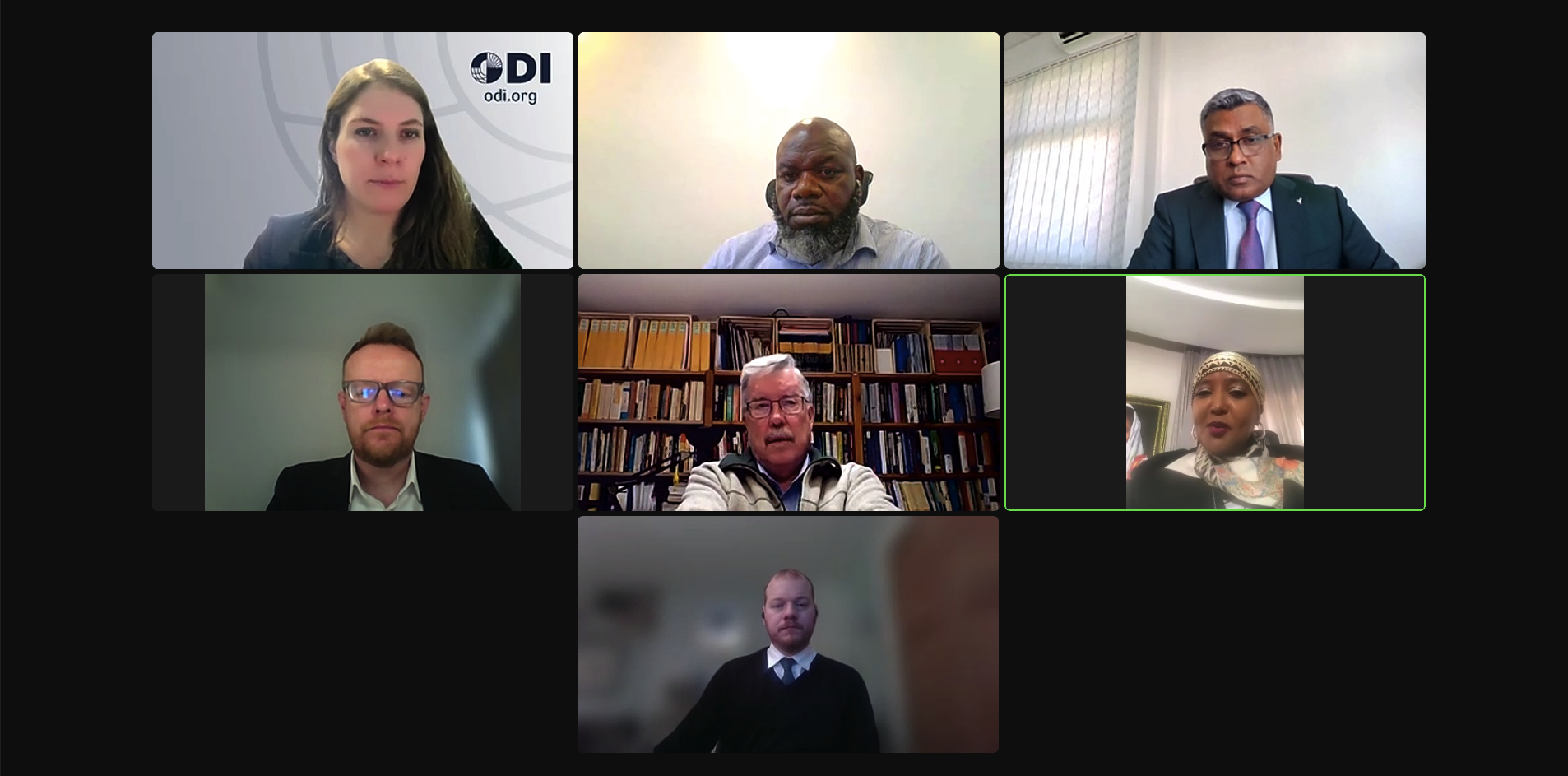
The discussion Identified strategies for Africa to maximise participation in sustainable markets globally while supporting domestic adaptation and mitigation efforts. Panellists explored considerations around new green trade measures, opportunities in green value chains, and leveraging the AfCFTA to scale low-carbon markets.
Providing timely input ahead of COP28 negotiations, the event spotlighted the importance of cooperation to empower communities on the frontlines of climate change through sustainable trade practices.
A recording of the full discussion is available here.
Engaging AfCFTA's potential to power Africa’s industrialisation agenda
SITA Director Dirk Willem te Velde engaged in high-level discussions around leveraging opportunities under the AfCFTA to drive industrial development in Africa at the 18th Africa Economic Conference, which was jointly organised by the African Development Bank (AfDB), the Economic Commission for Africa (ECA), and UNDP.
In his session on Fostering African industrialisation through linkages of SMEs to global value chains,Dirk engaged with experts from institutions including the African Development Bank, UNIDO and IFC sharing insights on Africa's participation in global supply chains and solutions to strengthen competitiveness. While African firms face challenges in reliably meeting demand, he proposed leveraging untapped regional resources and pursuing intra-African trade liberalisation under the AfCFTA. He emphasised this would boost industrial capabilities while creating a competitive foundation to drive Africa's future economic transformation. Read the summary here.
Private sector engagement, SMEs inclusivity and regional value chains development under the AfCFTA
At a European Commission InfoPoint conference on maximising intra-African collaboration under the AfCFTA, SITA Director Dirk Willem engaged with panellists on realising the agreement's industrialisation ambitions and investment provisions by fostering SME’s inclusivity and regional value chains.
His session, Private sector engagement under the African Continental Free Trade Area, provided insights into the AfCFTA's current status and goals for industrialisation. Panellists explored advancing these aims through the investment protocol and complementarity with initiatives like the EU's Global Gateway.
Sharing the stage with representatives from the AfCFTA Secretariat and IISD, Dirk weighed on how initiatives under the Global Gateway could positively impact African trade and investment given the right safeguards. He also reflected on the important link between the AfCFTA and attracting foreign direct investment to the continent. A recording of the session is available here.
…Maximising regional value chains and private sector participation
In related news, Dirk also engaged in critical conversations on maximising private sector and SME involvement in Africa's ambitious integration agenda at a high-level seminar hosted by the Policy Center for the New South (PCNS) in cooperation with the European Centre for Development Policy Management (ECDPM), the African Center for Economic Transformation (ACET) and the Institute for Security Studies (ISS).
He explored how the AfCFTA can drive RVCs and leverage partnerships to build resilience. Dirk emphasised the importance of moving to AfCFTA implementation using national committees, the EU's supporting role in technical assistance, trade infrastructure funding, adjustment mechanisms and investment promotion. His contributions, alongside experts from the PACCI, COMESA, PCNS and ECDPM, provided strategic guidance on both leveraging pragmatic opportunities and transforming economies.
SITA engagements in Africa
Advancing AfCFTA implementation through peer learning
SITA Director, Professor Dirk Willem te Velde, joined government representatives and other stakeholders for the inaugural Conference on AfCFTA Implementation Strategies held in Nairobi this month (January 2024). Organised by the United Nations Economic Commission for Africa (UNECA), through its Africa Trade Policy Centre (ATPC), in collaboration with the AfCFTA Secretariat and UNDP, the meeting provided a forum for AfCFTA state parties to share lessons, challenges, and best practices in utilising national and regional implementation strategies to operationalise the trade agreement.
In a session on “AfCFTA Implementation – State of Play and the Role of National Implementation Committees”, Dirk and Mr Million Habte from the AfCFTA Secretariat, shared insights on progress made and the critical function of National Implementation Committees (NICs) in coordinating efforts at the national level.
So far 19 out of 47 State Parties have established NICs while 32 countries have developed AfCFTA Implementation Strategies.
ODI’s work on AfCFTA implementation with the AfCFTA Secretariat is supported by UK International Development through the SITA Programme. The discussions from the conference reinforced ODI's commitment to facilitating inclusive and effective AfCFTA rollout through robust research and multi-stakeholder cooperation.
A recording of the full discussion can be accessed here.
Advancing Nigeria's AfCFTA participation
In December, the SITA programme supported key stakeholder workshops in Nigeria on operationalising the AfCFTA.
In collaboration with the Nigerian Action Committee on AfCFTA (NAC), we convened a multi-agency workshop bringing together agencies responsible for implementing and gazetting AfCFTA provisions within Nigeria.
Representatives from the Nigeria Customs Service, the Federal Ministry of Industry, Trade and Investment, the Federal Ministry of Justice, and the Federal Ministry of Finance crafted a roadmap to expedite the country's participation in the Guided Trade Initiative (GTI) - an important step towards unlocking regional opportunities.
SITA also partnered with NAC and the National Automotive Design and Development Council (NADDC) to host an event on the implementation of the Nigerian Automotive Industry Development Plan.
The event highlighted ODI research on leveraging the AfCFTA to develop Nigeria's automotive sector and attendees engaged in productive discussions around realising opportunities under the recently launched National Automobile Policy.
Empowering women in trade in AfCFTA implementation
The AfCFTA has huge potential to harness the power of women and youth to realise its true potential. In December, SITA Director, Dirk Willem, participated in the second edition of the AfCFTA Women in Trade Conference which was held in Tanzania. ODI, with support from the UK Government through UK International Development, was a strategic partner to the conference.
Held under the theme "Enhancing the Participation of Women in Trade in the Acceleration of AfCFTA Implementation", the three-day conference brought together various stakeholders from across the continent to discuss valuable insights into how women are playing a pivotal leadership role in driving the success of the AfCFTA, the challenges and opportunities in driving a more inclusive AfCFTA, and the key initiatives to empower women in trade.
…advancing Tanzania's trade and development agenda
While visiting Tanzania, Dirk held a series of productive meetings providing insights on advancing regional trade through the AfCFTA and Tanzania's development goals.
He met with AfCFTA NIC Coordinator, Million Habte, and Tanzanian AfCFTA NIC members, Sekela Mwaisela and Dorice Malle, to discuss Tanzania's progress under the Guided Trade Initiative framework. With the country making great strides, the meeting focused on examining further steps to fully realise the AfCFTA's potential.
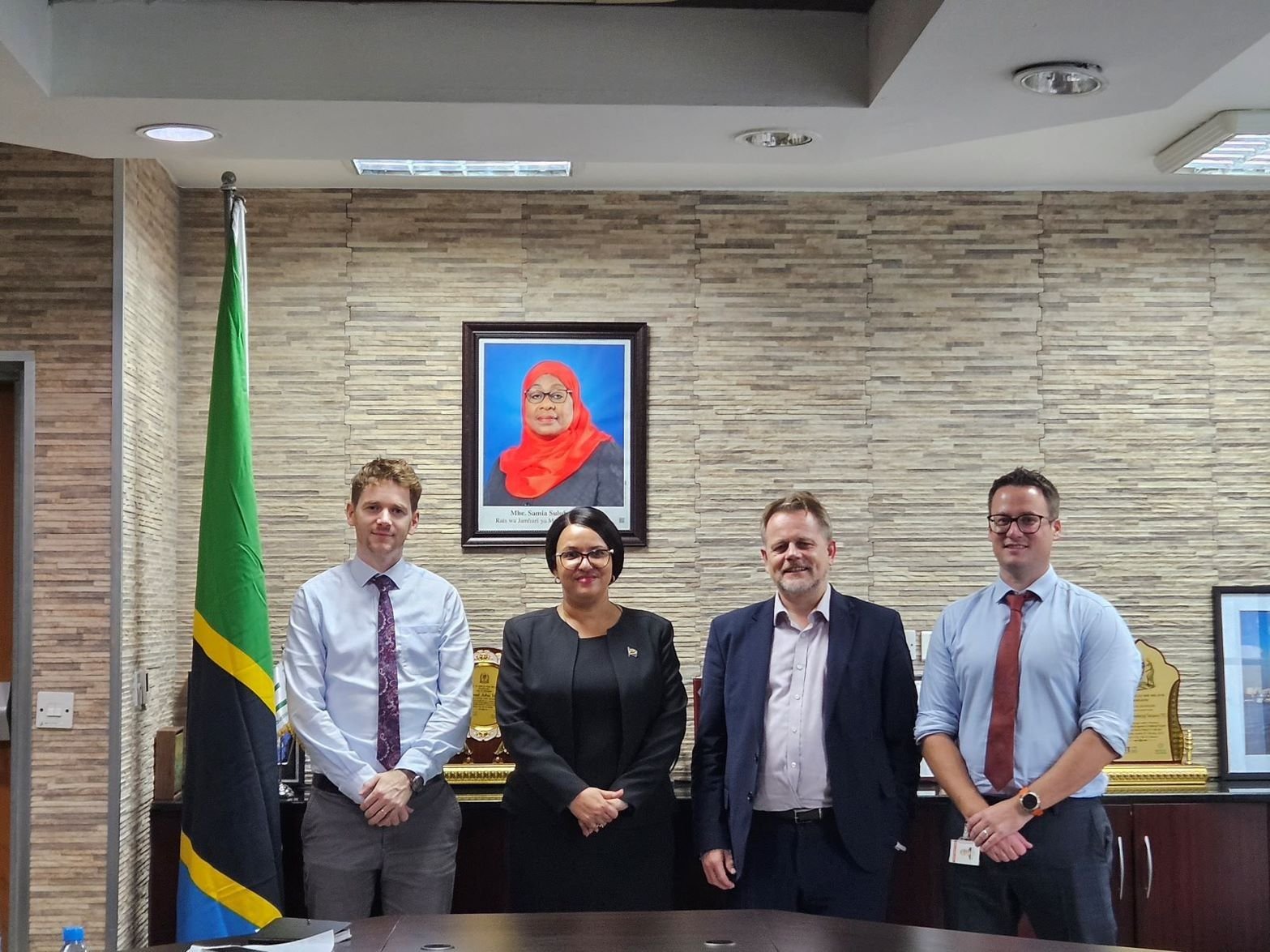
Dirk also connected with Dr. Tausi Kida, Permanent Secretary of Tanzania's new investment-focused Ministry based in the Office of the President, to discuss strategic policy planning and prioritisation required to successfully implement investment goals.
Through these encounters, the SITA programme was able to foster valuable relationships and inform Tanzania's ongoing efforts to strengthen regional integration and economic growth through collaboration with institutions such as ODI.
Elsewhere on the web
Landmark action plan on accelerating investment in Africa launched at Davos
A new report jointly produced by the World Economic Forum and Friends of AfCFTA was recently unveiled at a high-level event in Davos. The first-of-its-kind paper, which SITA Director Dirk Willem contributed to developing during preparatory meetings, outlines an ambitious $130 billion action plan to stimulate business and investment across multiple sectors on the continent.
Projects profiled in the landmark report aim to help realise AfCFTA's economic benefits through commitments in crucial industries like infrastructure, automotive, agriculture and pharmaceuticals. These include mobilising financing, deploying green technologies, expanding value chains and commitments on workforce issues.
Download the full report here.
First-ever 'Trade Day' puts spotlight on trade’s vital role in climate action
As climate pressures mount, new low-carbon supply chains are emerging globally. In November at COP28, ODI partnered with the Enhanced Integrated Framework (EIF) and World Trade Organization (WTO) to explore how LDCs can leverage this shift.
The event, “Enabling a “green seize” of new trade opportunities for LDCs: learning from the Covid-19 response to address the climate emergency”, provided timely input ahead of the first-ever 'Trade Day' at COP28 on 4th December, highlighting the growing recognition that trade must be central to climate action and development progress.
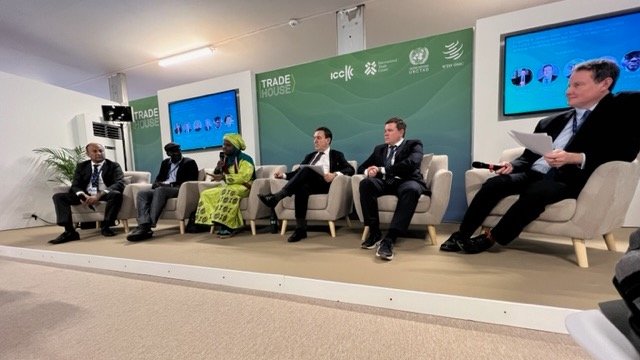
Panellists discussed ensuring open markets, technology transfers and private sector engagement to facilitate LDC participation in green, resilient trade. With LDCs accounting for 15% of the population but under 1% of exports, doubling their share by 2030 remains crucial.
Rather than a ‘green squeeze’, the goal is a ‘green seize’ - empowering LDCs to capitalise on growing sustainable trade flows and build climate resilience through new partnerships. Watch the event here.
Upcoming events and roundtables
Kick-off workshop on harnessing the blue economy for African coastal states through the AfCFTA
12 February 2024
Join the SITA Programme on 12th February from 09:00 – 10:30 GMT for a kick-off workshop on "Harnessing Africa's blue economy through the AfCFTA".
Key stakeholders and experts will explore realising the potential of coastal economies within the trade agreement framework, identifying policy gaps and collaboration opportunities.
Contact Angela Kolongo at [email protected] for more information on this important online discussion, which marks the beginning of a critical initiative to explore the nexus between the AfCFTA, the regenerative blue economy, and the development aspirations of African coastal states, including Small Island Developing States (SIDS).
Publications
Assessing the restrictiveness of rules of origin in the AfCFTA
By Yohannes Ayele
The African Continental Free Trade Area (AfCFTA) provides tariff-free access for African firms if they meet the Rules of Origin, which aim to restrict preferential tariffs to intra-African trade. However, this report finds the rules hinder regional value chain development and preference utilisation due to their restrictive nature. It examines rules of origin impacts on trade and industrial policy. Specifically, it identifies the most restricted sectors and climate implications. To reduce costs for firms, the report suggests lowering rules' restrictiveness through relaxing product-specific rules, exploring self-certification, permitting duty drawbacks, and considering rules' effects on regional value chains in textiles and automobiles. This would support the AfCFTA's goals by easing regional trade.
Videos
Berbera Port's role in transforming trade
In a special WSJ video profiling DP World's investments, SITA Technical Lead Max Mendez-Parra highlighted the economic potential of the Port of Berbera's strategic location. Featured for his insights on Berbera's impact, Max noted Somaliland's status as an important global trade hub for the Horn of Africa due to its position at the entrance to the Red Sea — a route which accounts for 12% of global trade and 30% of containers.
This is based on previous analysis supported by the FCDO-funded SITA Programme in a report titled, "The AfCFTA and the Berbera Corridor: opportunities for and potential impact on Somaliland’s economy".
Elsewhere, Dirk also appeared on MM Somali TV in a report following FCDO’s Damon Bristow and Paul Walters' visit to the Berbera Corridor to see the impact of UK investment in Somaliland.
Be sure to check out our YouTube channel which now features all our panel discussions on the events and workshops we have hosted in the last quarter.

